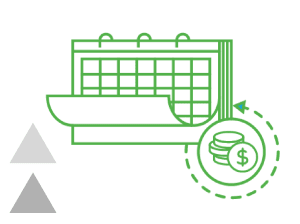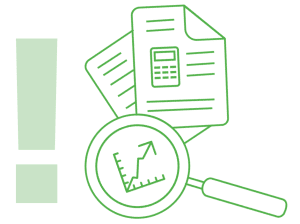From this article, you will learn:
- when the limitation period for tax liabilities expires?
- whether the limitation period for tax liabilities can change?
- what the initiation of fiscal penal proceedings has to do with the suspension of the limitation period?
Some time ago, we wrote on our blog about the first judgments (judgement of the Provincial Administrative Court in Krakow of 24 March 2021, file ref. no. I SA/Kr 1252/20 and resolution of the Supreme Administrative Court of 24 May 2021, ref. no. I FPS 1/21), in which the courts sided with taxpayers and opposed the tax authorities' practices of artificially initiating fiscal penal proceedings in order to suspend the running of the limitation period. It seems that the jurisprudence of the courts in this respect has become established in a way that is favorable to taxpayers.
Controversial practice of tax authorities – does the mere fact of initiating proceedings suspend the limitation period?
The statute of limitations for a tax liability generally expires after 5 years from its inception. However, the Tax Ordinance provides for certain exceptions.
Pursuant to Article 70 § 6 of the Tax Code, the limitation period is automatically suspended if fiscal penal proceedings are initiated against the taxpayer.
Tax authorities took advantage of this provision and initiated this type of proceedings (often suspending them almost immediately) when there was a risk that the limitation period was about to expire. The officials wanted to gain additional time to take action to recover from the taxpayer an obligation that would become time-barred without initiating fiscal penal proceedings.
Learn more about tax advisory services
The courts are trying to put an end to this abuse of the provisions of the Tax Ordinance. In the latest judgments (e.g. judgment of the Provincial Administrative Court in Wrocław of 26 September 2023, reference number I SA/Wr 90/21, judgment of the Provincial Administrative Court in Kielce of 28 September 2023, reference number I SA/Ke 17/23, judgment of the Provincial Administrative Court in Białystok of 27 September 2023, reference number I SA/Bk 230/23), the courts state – citing the resolution of the Supreme Administrative Court of May 2021 mentioned in the introduction of the article – that not every initiation of fiscal penal proceedings may constitute the basis for suspending the tax limitation period pursuant to Art. 70 § 6 (1) of the Tax Ordinance.
The effect of suspending the limitation period will not occur if the initiation of the proceedings was of an instrumental nature, i.e. the principle of trust in the tax authorities was exceeded.
Moreover, the courts strongly emphasize that although the assessment of the correctness of initiating fiscal penal proceedings (analysed from the point of view of the provisions of the Code of Criminal Procedure or the Penal Fiscal Code and the objectives in the field of criminal law implemented by these acts) is not the responsibility of administrative courts, it is then possible and necessary for the courts to check whether the tax authority has not resorted to initiating fiscal penal proceedings in a way that constitutes an abuse of law.
Therefore, administrative courts are of the opinion that officials do not have the right to use the provisions of the Tax Ordinance to artificially initiate fiscal penal proceedings only to suspend the limitation period in their tax proceedings.
Consequences for taxpayers whose liabilities expire
The number of judgments issued on this issue indicates that the tax authorities abuse of Art. 70 § 6 of the Tax Ordinance is still a common problem. However, the analysis of the position of administrative courts leads to the conclusion that taxpayers have a good chance of winning the fight against this unfair and unethical official practice. Each case requires an individual assessment, however, in the case of instrumental use of the institution of fiscal penal proceedings, the courts side with the taxpayers and it is worth fighting for their rights.





